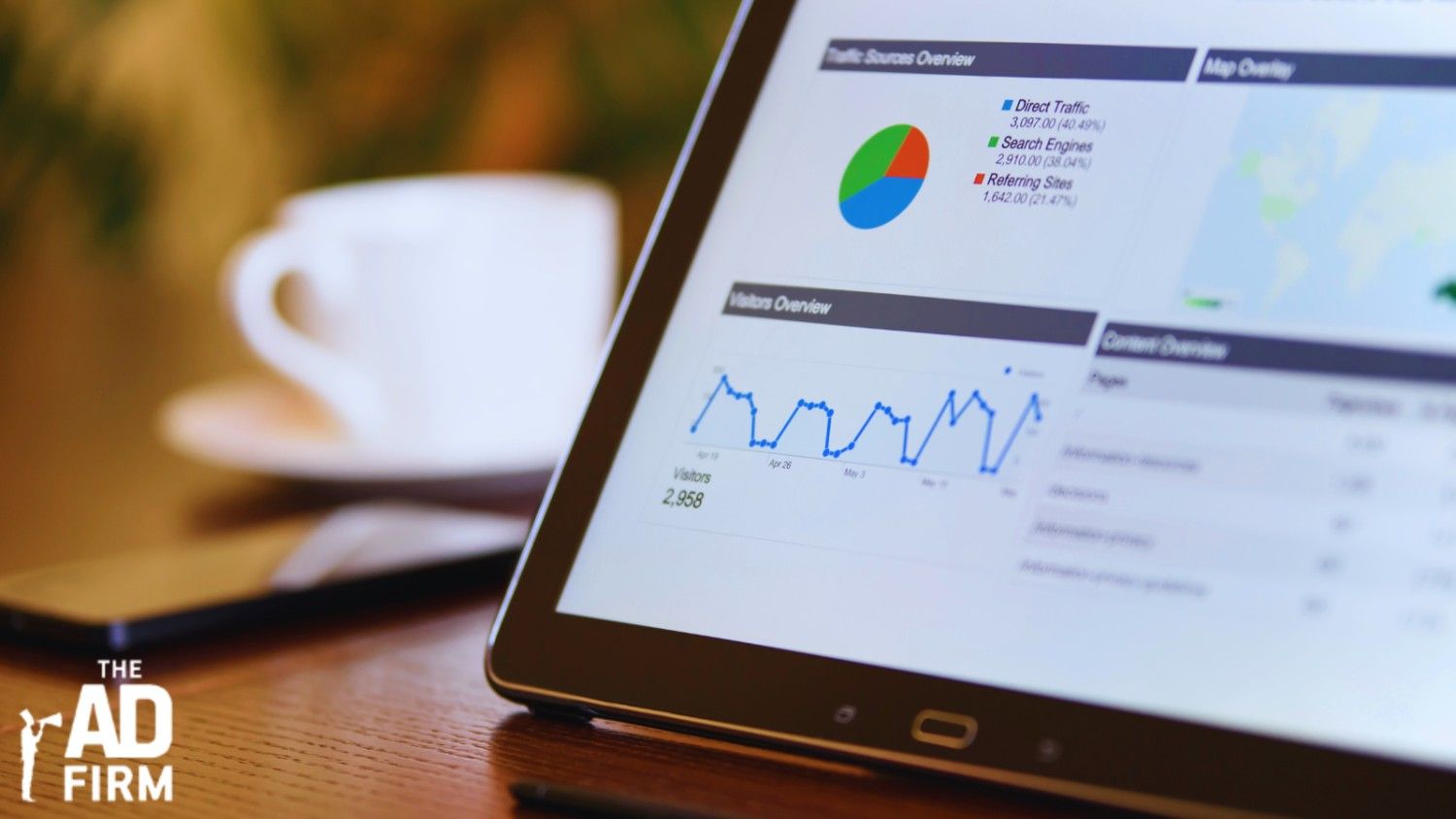Google Analytics 4 (GA4) is redefining digital analytics in 2025, providing businesses with a more advanced, privacy-focused, and AI-driven way to track user interactions. As Universal Analytics (UA) has been fully replaced, companies must now rely on GA4’s event-based tracking system to measure website performance, optimize marketing strategies, and improve decision-making.
Businesses that adapt to GA4 effectively can gain deeper insights into customer behavior, enhance their SEO services, and refine their advertising efforts. Whether you’re a digital marketing agency, an eCommerce brand focusing on Shopify SEO, or a local business leveraging local SEO services, GA4 provides a data-driven advantage.
This guide explores the core features of GA4, how businesses can set it up, its impact on data privacy, and how to use it for smarter marketing strategies in 2025.
Understanding GA4 and Its Evolution
Google Analytics 4 (GA4) marks a fundamental shift in how businesses track and analyze user data. As digital marketing evolves, traditional session-based tracking has become insufficient for capturing user behavior across multiple devices and platforms. GA4 introduces an event-based model, providing more flexibility, accuracy, and predictive insights that help businesses make data-driven decisions.
For businesses that rely on analytics to refine their marketing strategies, GA4 is not just an upgrade but a necessity. It enhances how data is collected, interpreted, and used for optimizing campaigns, improving customer engagement, and increasing conversions.
What is GA4, and Why is it Important in 2025?
GA4 is Google’s latest analytics platform, designed to replace Universal Analytics (UA) with a more advanced and flexible approach to tracking user interactions. Unlike UA, which focused on session-based data, GA4 prioritizes event-based tracking, allowing businesses to capture precise insights into how users engage with their websites and applications.
This change is crucial for businesses investing in small business SEO, as GA4 provides deeper insights into user journeys without relying on third-party cookies. With privacy regulations tightening, GA4 leverages first-party data and machine learning models to fill in gaps, ensuring accurate reporting while complying with evolving data protection laws.
Amplify Your Market Strategy with The Ad Firm
- PPC: Master the art of pay-per-click advertising to drive meaningful and measurable results.
- SEO: Elevate your visibility on search engines to attract more targeted traffic to your site.
- Content Marketing: Develop and implement a content marketing strategy that enhances brand recognition and customer engagement.
Key advantages of GA4 include:
- Cross-platform tracking to unify website and mobile app data into a single view.
- Custom event tracking that allows businesses to measure specific user actions, such as form submissions, video plays, or product purchases.
- Advanced attribution modeling that improves how conversions are assigned to marketing channels, making it easier to measure campaign effectiveness.
With more businesses shifting to data-driven strategies, understanding GA4 is essential for maintaining an effective online presence.
Is GA4 Replacing Universal Analytics?
GA4 has fully replaced Universal Analytics. As of July 2023, Google no longer processes new data in UA, making migration to GA4 mandatory for businesses that want to continue tracking website and app performance. While the transition requires adjustments, it also offers long-term benefits in accuracy, privacy compliance, and reporting flexibility.
For companies offering WordPress SEO services, integrating GA4 is critical for tracking keyword performance, engagement rates, and goal completions. Unlike UA, GA4’s enhanced tracking capabilities allow businesses to collect meaningful insights without relying on outdated session-based models.
Key differences between GA4 and UA include:
- More precise conversion tracking through event-based data collection.
- Improved audience segmentation using machine learning to identify user trends.
- A privacy-first approach that aligns with global data protection regulations.
Businesses that delay switching to GA4 risk losing valuable analytics insights. Adapting to this new platform is not just about compliance; it is an opportunity to gain a competitive edge with more accurate and actionable data.
Key Features and Major Changes in GA4
GA4 introduces a fundamental shift in how businesses track and analyze user behavior. Unlike Universal Analytics, which relied on session-based tracking, GA4 adopts a more flexible, event-driven approach. This shift allows businesses to collect more granular data while improving accuracy in tracking customer interactions across multiple platforms. With Google’s emphasis on AI-driven insights and privacy compliance, GA4 has become essential for businesses looking to refine their digital marketing strategies.
What Are the Biggest Updates in GA4 for 2025?
GA4 continues to evolve, offering new features that enhance analytics, improve attribution, and align with changing data privacy regulations. Some of the most impactful updates include:
Enhance Your Brand Visibility with The Ad Firm
- SEO: Enhance your online presence with our advanced SEO tactics designed for long-term success.
- Content Marketing: Tell your brand’s story through compelling content that engages and retains customers.
- Web Design: Design visually appealing and user-friendly websites that stand out in your industry.
- Event-Based Tracking: GA4 replaces traditional session-based metrics with event tracking, allowing businesses to monitor user interactions such as clicks, video plays, and scroll depth more effectively. This approach provides a clearer picture of how users engage with content.
- AI-Powered Insights: Machine learning now plays a crucial role in GA4, helping businesses predict user behavior, identify trends, and make data-driven decisions. Features like predictive analytics allow companies to forecast revenue, spot high-value customers, and optimize marketing campaigns accordingly.
- Cross-Device and Cross-Platform Tracking: GA4 enables businesses to track users across websites, mobile apps, and multiple devices within a single property. This eliminates data fragmentation and improves user journey analysis.
- Enhanced Attribution Models: GA4’s new attribution models provide better visibility into conversion paths, moving away from the outdated last-click attribution method. Businesses can now understand which touchpoints contribute most to conversions.
- Privacy-First Approach: With growing concerns over data privacy and regulations like GDPR and CCPA, GA4 reduces reliance on third-party cookies. It leverages first-party data and consent-based tracking, ensuring compliance while maintaining valuable analytics insights.
For an SEO company optimizing campaign tracking, these changes allow for a more refined understanding of user engagement and search performance. The shift to event-based tracking helps track key SEO metrics more accurately, while AI-driven insights allow agencies to anticipate trends and adjust strategies proactively. Businesses that adapt to these changes can leverage more precise data to improve digital marketing ROI and stay competitive in 2025.
How Does GA4 Differ from Universal Analytics?
GA4 differs significantly from Universal Analytics in multiple ways:
| Feature | GA4 | Universal Analytics |
| Data Model | Event-Based | Session-Based |
| AI Insights | Yes | No |
| Cross-Platform Tracking | Yes | Limited |
| Data Retention | 14 Months (Default) | Up to 50 Months |
| Bounce Rate | Replaced with Engagement Rate | Traditional Bounce Rate |
For companies offering generative engine optimization, GA4’s AI-driven insights help track how users interact with AI-generated search results, providing more accurate performance analysis.
Advance Your Digital Reach with The Ad Firm
- Local SEO: Dominate your local market and attract more customers with targeted local SEO strategies.
- PPC: Use precise PPC management to draw high-quality traffic and boost your leads effectively.
- Content Marketing: Create and distribute valuable, relevant content that captivates your audience and builds authority.
Setting Up and Migrating to GA4
Migrating to GA4 is essential for businesses that want to maintain accurate website analytics and ensure continuity in tracking performance. Unlike Universal Analytics, GA4 requires a new setup process with updated tracking methods, including event-based data collection and custom conversion tracking. A seamless transition ensures businesses retain valuable insights while benefiting from GA4’s advanced reporting capabilities.
Can I Migrate from Universal Analytics to GA4 Easily?
The migration from Universal Analytics to GA4 is not automatic and requires a manual setup to align with GA4’s event-driven data model. Businesses must correctly configure their new GA4 property to avoid data gaps and inconsistencies. The migration process involves:
- Creating a GA4 Property: Set up a new GA4 property in Google Analytics and define measurement settings.
- Installing the GA4 Tracking Code: Implement the GA4 tag using Google Tag Manager or directly embed it within the website’s code.
- Configuring Event Tracking and Conversions: Unlike Universal Analytics, GA4 does not track predefined goals. Businesses must manually set up event tracking for key actions, such as form submissions, purchases, and video interactions.
- Connecting GA4 to Google Ads: Linking GA4 with Google Ads enables better audience segmentation and conversion tracking, ensuring ad campaigns remain data-driven and optimized.
For businesses focused on eCommerce PPC management, accurate GA4 tracking is critical to measuring product performance, revenue attribution, and customer journey analysis. Proper implementation ensures that ad spending translates into measurable sales and engagement.
How Can I Set Up GA4 for My Website?
A correct GA4 setup ensures businesses capture meaningful user interactions and leverage data for better decision-making. To configure GA4 effectively:
- Install the GA4 Tracking ID: Use Google Tag Manager to deploy the GA4 tag across the website for seamless tracking.
- Enable Enhanced Measurement: Activate built-in tracking features for actions such as scroll tracking, outbound clicks, and video engagement.
- Customize Event Tracking: Define key user interactions, including call-to-action clicks, lead form submissions, and product views.
- Link GA4 with Google Ads: Sync GA4 with Google Ads to refine ad targeting, audience segmentation, and performance analysis.
For businesses offering local SEO services, GA4’s location-based tracking is invaluable. It enables companies to monitor user behavior from organic search, track interactions with Google My Business listings, and assess how users engage with local search results. A well-structured GA4 setup ensures businesses can measure their digital marketing effectiveness and optimize strategies accordingly.
Streamline Your Digital Assets with The Ad Firm
- Web Development: Build and manage high-performing digital platforms that enhance your business operations.
- SEO: Leverage advanced SEO strategies to significantly improve your search engine rankings.
- PPC: Craft and execute PPC campaigns that ensure high engagement and superior ROI.
Leveraging GA4 for Data-Driven Decision Making
GA4 empowers businesses with deeper, more actionable insights by shifting from traditional session-based tracking to an event-driven model. This transformation allows companies to understand user behavior more precisely, optimize marketing efforts, and improve overall performance. The platform’s new reporting structure and predictive analytics enable businesses to make informed decisions that enhance customer engagement and maximize conversions.
What Metrics Should Businesses Focus on in GA4?
GA4 introduces several key metrics that provide a clearer picture of user behavior and campaign performance. These include:
- Engagement Rate: Unlike Universal Analytics’ bounce rate, GA4 measures user engagement based on meaningful interactions, such as time spent on a page, scroll depth, and video plays.
- User Lifetime Value (LTV): This metric calculates a customer’s long-term value, helping businesses refine retention strategies and prioritize high-value audiences.
- Predictive Metrics: GA4 uses AI-driven insights to predict user actions, such as the likelihood of a purchase or churn, enabling proactive marketing adjustments.
For businesses offering Shopify SEO, these metrics are essential for understanding how customers interact with product pages, tracking add-to-cart actions, and optimizing conversion funnels to improve eCommerce performance.
How Can GA4 Improve Marketing Strategies and User Insights?
GA4 enhances marketing strategies by providing more detailed attribution models, refined audience segmentation, and cross-platform tracking capabilities. Key benefits include:
- Advanced Attribution Modeling: GA4 moves beyond last-click attribution, offering data-driven attribution models that assign value to each touchpoint in a customer’s journey. This helps businesses understand which marketing channels drive the most conversions.
- AI-Powered Audience Segmentation: GA4 automatically segments users based on their behavior, interests, and likelihood to convert, allowing businesses to create more personalized and effective campaigns.
- Cross-Device and Cross-Platform Tracking: GA4 unifies data from websites, apps, and other digital platforms, providing a holistic view of customer journeys. This is crucial for businesses that engage with users across multiple touchpoints.
For a digital marketing agency, these features enhance ad targeting, improve retargeting strategies, and provide deeper insights into customer behavior, allowing for more precise campaign optimization. By leveraging GA4’s advanced analytics, businesses can refine their marketing efforts, allocate budgets more effectively, and maximize ROI.
Transform Your Online Strategy with The Ad Firm
- SEO: Achieve top search rankings and outpace your competitors with our expert SEO techniques.
- Paid Ads: Leverage cutting-edge ad strategies to maximize return on investment and increase conversions.
- Digital PR: Manage your brand’s reputation and enhance public perception with our tailored digital PR services.
Get Expert GA4 Support for Your Business
GA4 is not just an upgrade. It is a complete transformation in how businesses track and analyze data. AI-powered insights, enhanced event-based tracking, and a privacy-first approach offer unparalleled accuracy in measuring user behavior and marketing performance. Whether you’re an eCommerce brand optimizing Shopify SEO, a local business leveraging small business SEO, or a company enhancing its SEO services, GA4 equips you with the tools needed to stay ahead in a competitive digital landscape.
Do not let outdated analytics hold your business back. Future-proof your data strategy with expert GA4 migration, setup, and reporting solutions tailored to your goals. Contact The Ad Firm today to optimize your analytics and maximize your marketing impact!






